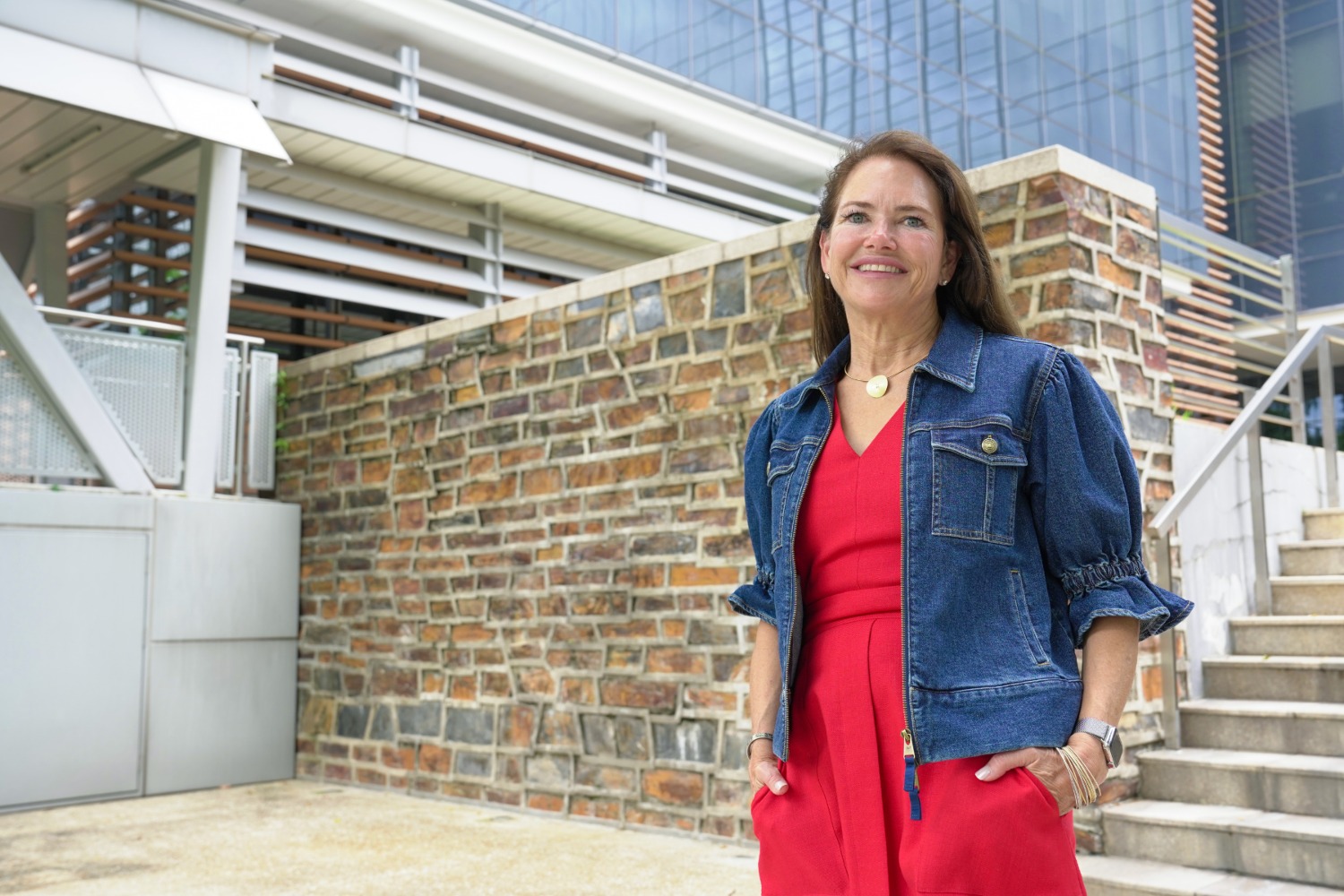Newly minted doctor Glenda Wee enters her first posting as a house officer with an unusual but powerful foundation – she’s woven together a user-centred mindset from the worlds of computer science and medicine.
“To me, technology is useless if people don't know how to use it or struggle with it,” said Wee. “Similarly, if patients don’t understand the treatment plan, then it will be much harder for them to follow it and get better.”
These parallels emerged during a shadowing stint Wee undertook after completing her ‘A’ levels. She spent two weeks with her family physician, Dr Eugene Loke, a clinical tutor for undergraduate students, who regularly hosts aspiring medical students looking for an accurate picture of the profession before embarking on their studies.
“He taught me that, especially for family medicine, there’s no way that we can fix every ailment that patients come through the doors with. But the way he treated his patients, really listened to what they were trying to say, that really inspired me. And that’s how I realised that medicine is not all about prescribing medication or giving a treatment,” said Wee, for whom Loke would become a steadfast mentor.
To explore both passions, she enrolled via the then-newly launched conditional admissions pathway offered by Duke-NUS and the Singapore University of Technology and Design, where she studied computer science and design, with a special interest in User Interface/User Experience Design, or UI/UX.
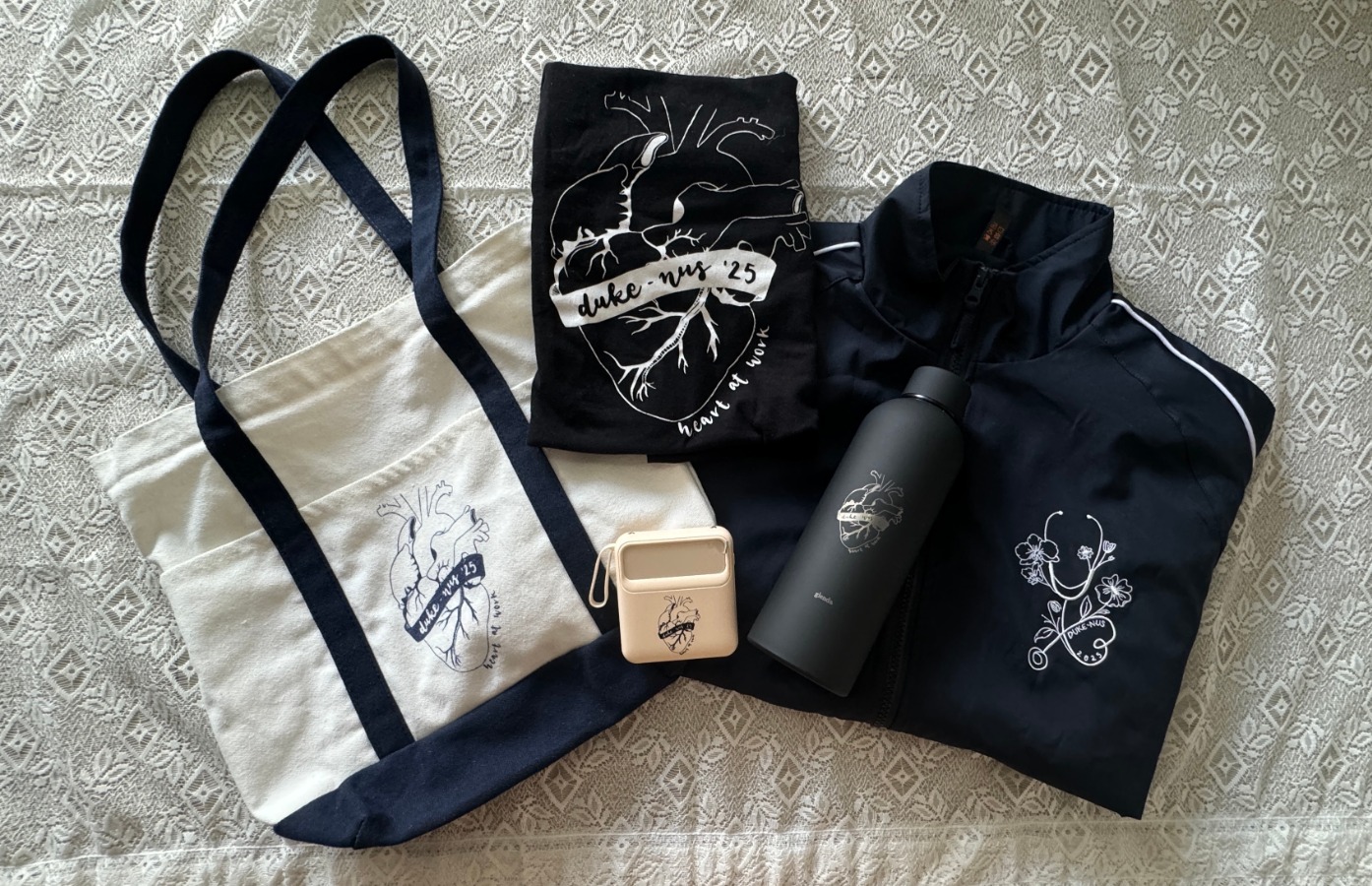
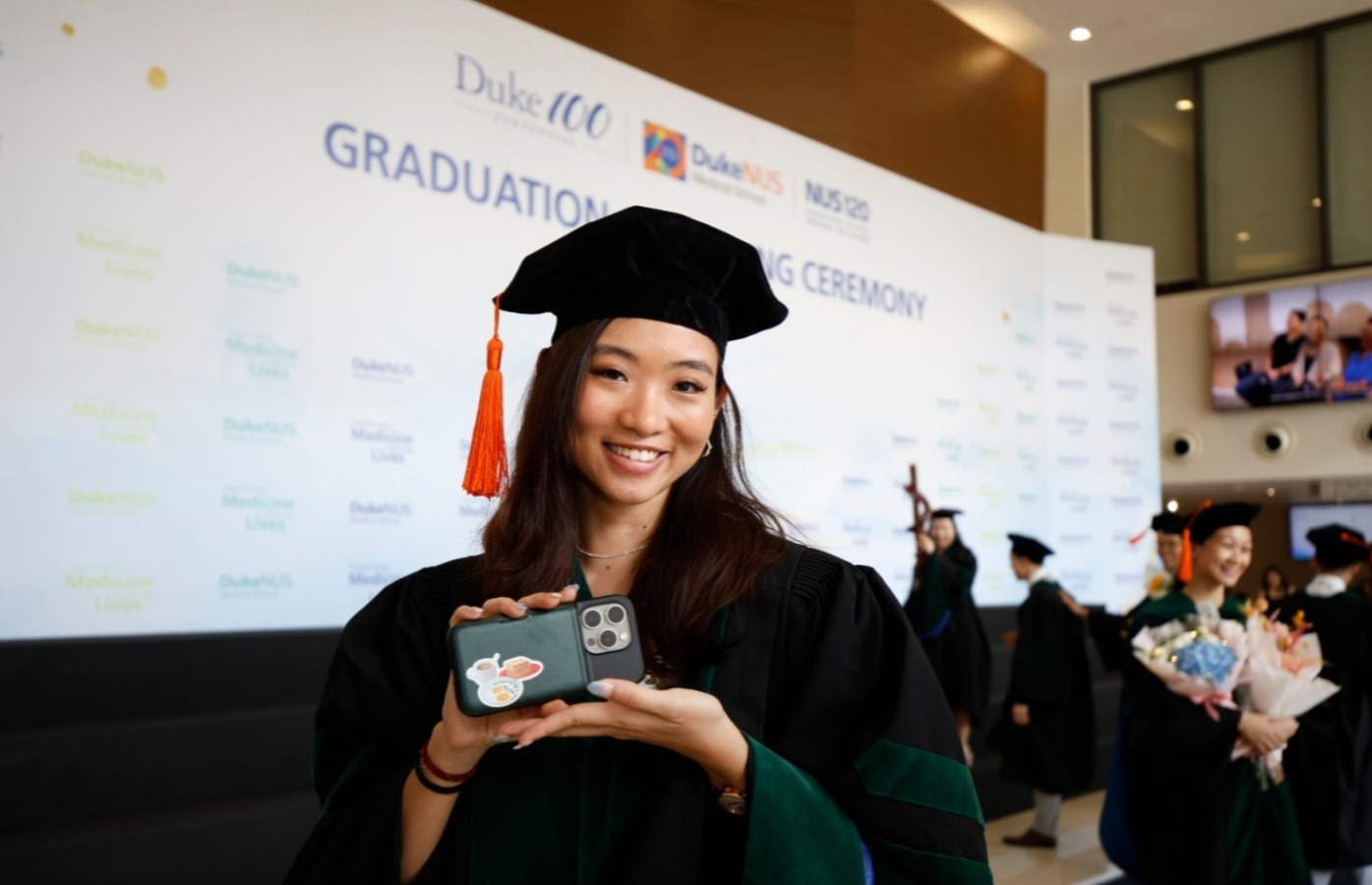
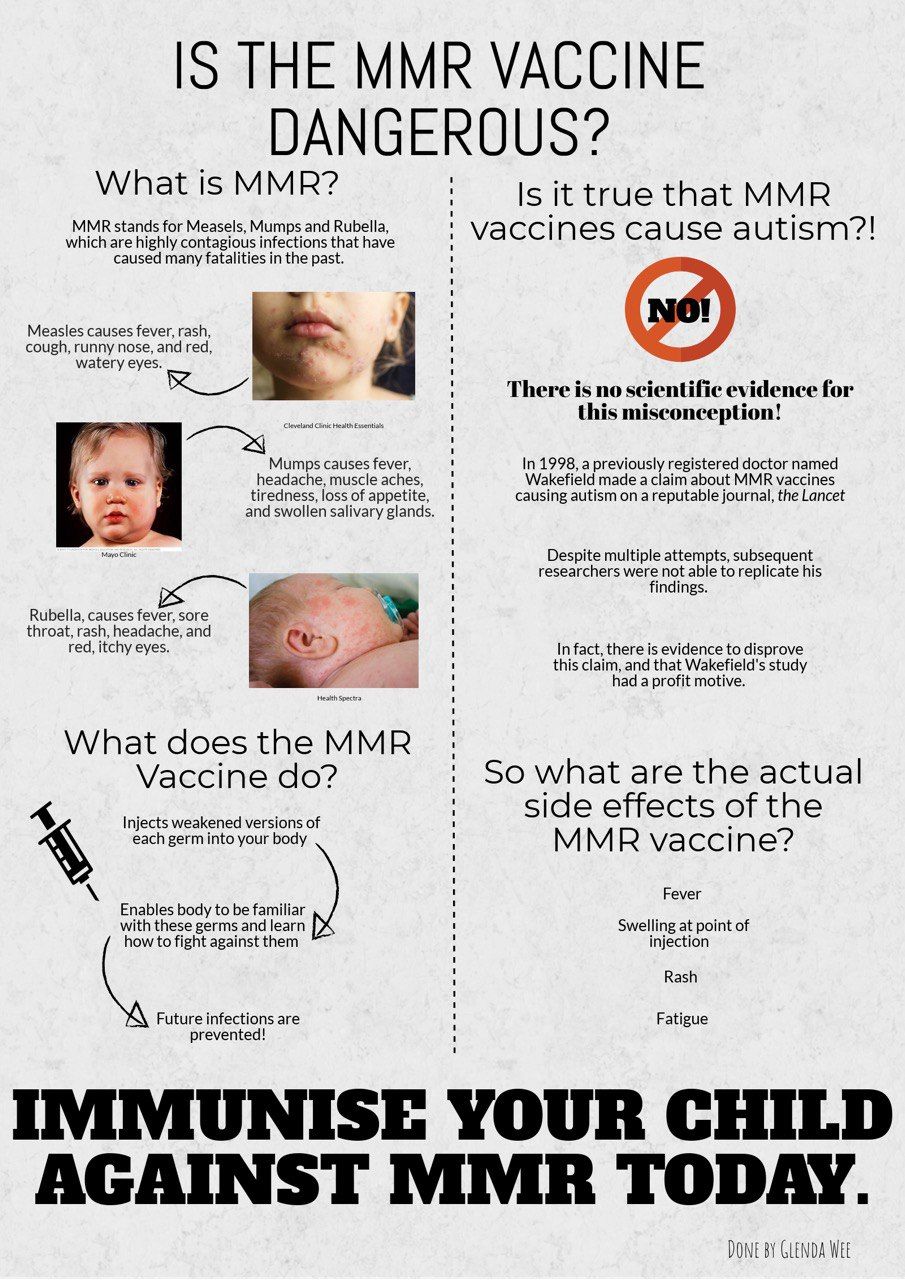
The UX modules gave her a chance to zero in on what shapes a good user experience. She had to “identify the needs of users and develop solutions that not only meet their needs but that they can use”, said Wee.
“That is the same in medicine. If I’m able to identify my patients’ concerns and expectations, I believe that’s half the battle won,” she added.
Studying computer science, where each step is coded in ones and zeros, also instilled a step-by-step approach that Wee still relies on when encountering a challenge because it quickly turns complex problems into manageable chunks—a skill she will put her in good stead in a busy emergency room where she hopes to build her career.
Being on the conditional admissions route meant that alongside her computer science studies, Wee had plenty of opportunities to pursue healthcare-related internships and projects. These opportunities felt particularly pertinent when COVID struck.
“COVID made all the healthcare projects even more relevant and pressing,” she said.
Among her highlights from that time was working on a pilot falls-prevention solution for hospitals. Wee and her team designed software that comprised sensors—motion sensors on the toilet roll holder and bidet, and weight sensors on the grip bars—that could trigger an alert when the user was about to get up from the toilet. As well as preventing falls, the solution also aimed at freeing nurses’ time, which was welcomed with open arms.
However abundantly she had benefitted from regular exposure to the healthcare ecosystem during her undergraduate years, coming to Duke-NUS was a test of her mettle nonetheless. Wee describes the gruelling routine of Year 1 students who have to master many of the foundational disciplines in medicine in just one year.
“We would have two tests per week, and our longest break was a two-week holiday,” she recounted.
But amidst the intense studying, she forged some of her fiercest friendships, from which emerged many little moments that collectively formed “the best core memories”, including one instance during a clinical rotation with a breast surgeon. The surgeon was grilling Wee and her teammates about breast cancer.
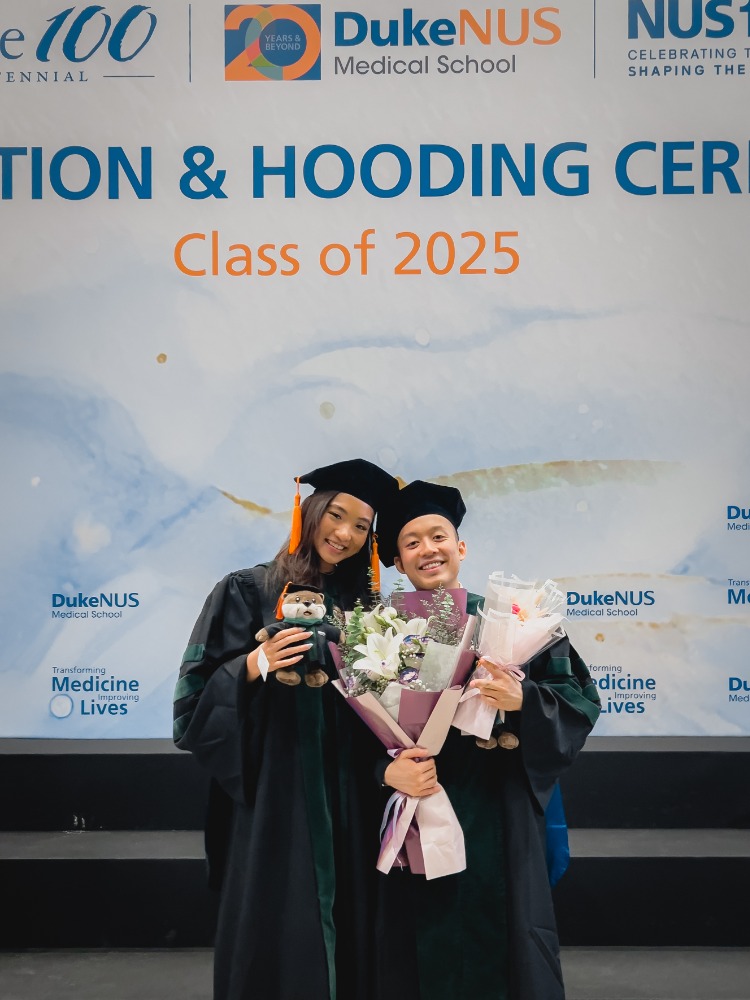
Among the hail of questions, the surgeon suddenly asked: What is the difference between a 1-centimetre tumour and a 2-centimetre tumour?
Without thinking, she blurted out: “a 50 per cent increase.”
“My friend quickly jumped in saying, ‘It’s stage one vs stage two cancer’,” Wee said. “He said it quite loudly, so he could cover whatever I had just said, and we both wouldn’t get told off for not studying.”
It wasn’t just each other from which Wee and her classmates did their learning. In a moment where life imitates adage, Wee encountered a patient during her clinical rotations who taught her much about the lived experience of needing dialysis. After letting the students examine him and take his history, he patiently took them through the process of dialysis, shared his dialysis diary and explained how to operate the peritoneal dialysis machine.
“I was very grateful that he took the time to explain every single step because it really helps to understand what the patient actually goes through,” said Wee.
On 31 May, Wee was one of 121 graduating students who received their degrees and scrolls from Minister for Health Mr Ong Ye Kung and Duke-NUS Dean Professor Thomas Coffman at the Graduation and Hooding Ceremony 2025. She is among the first six students for whom this marks the end of a seven- to eight-year journey from the start of their undergraduate studies to the attainment of their MDs.
'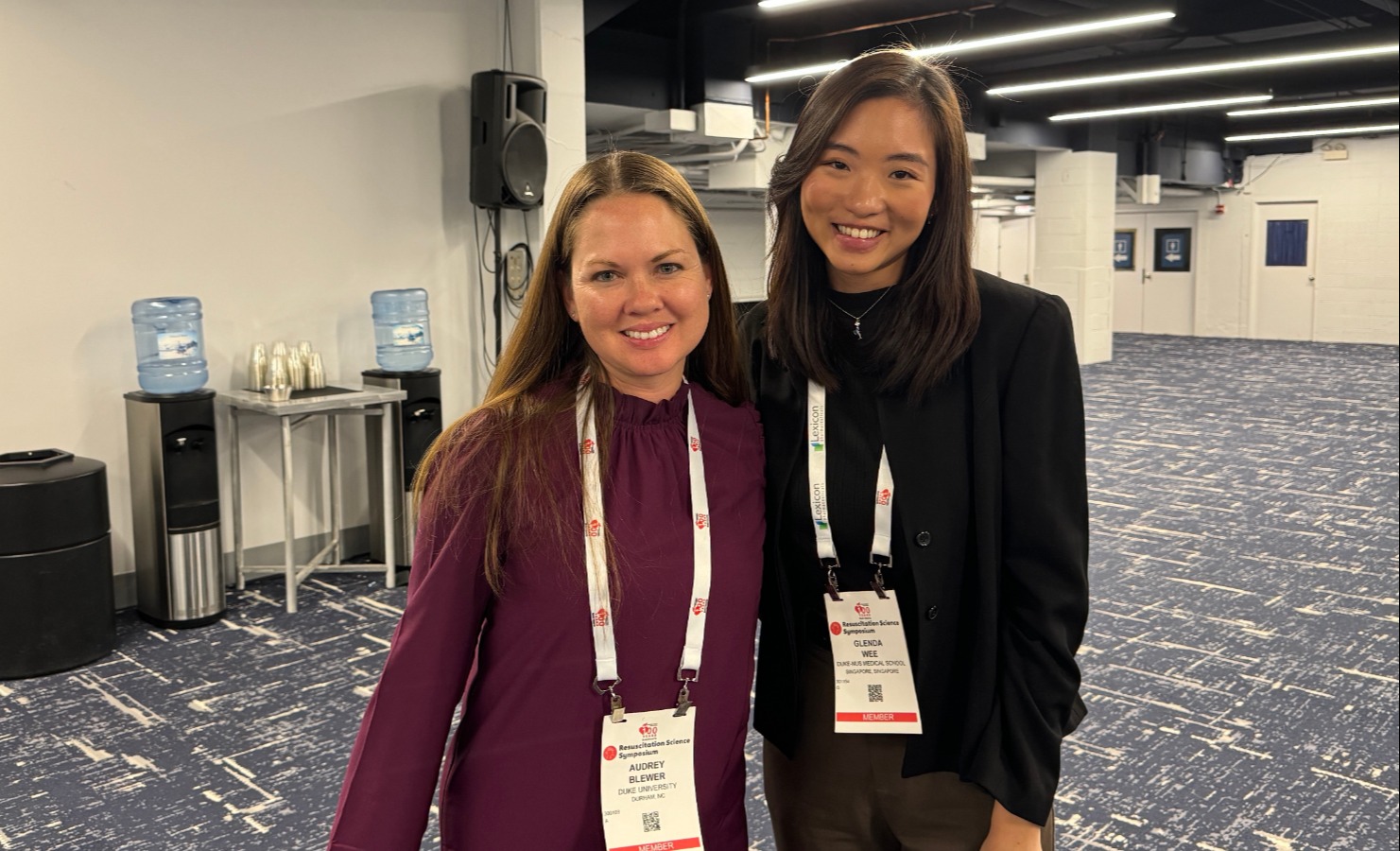
Another highlight from Dr Glenda Wee’s time at Duke-NUS was completing her Year 3 research project at Duke, where she worked with Dr. Audrey Blewer, an epidemiologist and resuscitation scientist. The icing on her experience came in the form of a Paul Dudley White International Scholar Award at the American Heart Association Conference in Chicago in November 2024 // Credit: Courtesy of Glenda Wee
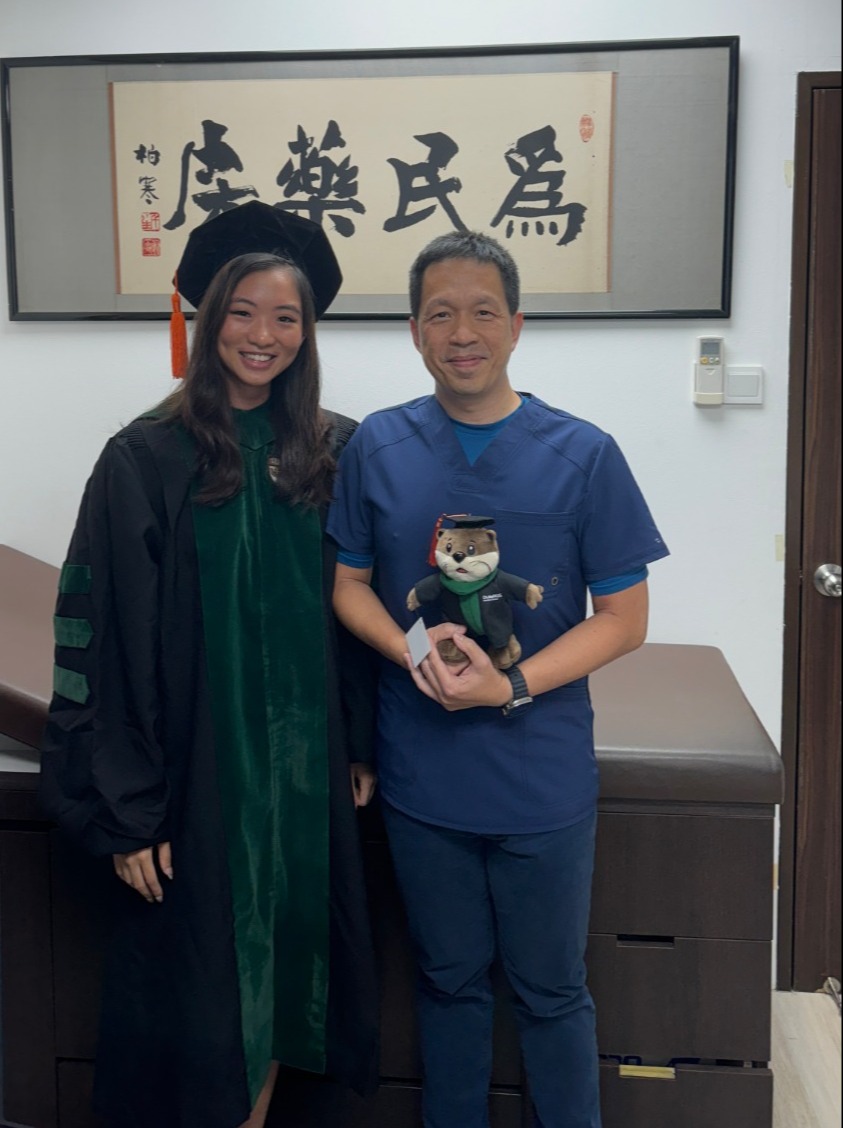
Fittingly for Wee, co-founder of Highlander Health Dr Amy Abernethy, was the keynote at this milestone event. Abernethy, like Wee, is fascinated by what technology and big data can do to accelerate clinical evidence generation so that new drugs and interventions reach patients who need them faster—a fascination that led Abernethy to pursue a many-faceted career that brings medical progress to people who need it most.
Loke, who remains a mentor to Wee, reflected on her journey from being a teenager to newly minted doctor: “Glenda’s journey through medical school was marked by quiet determination and unwavering grit. She met every challenge with resilience and grace, consistently showing deep empathy, humility, and emotional intelligence in her patient care.”
Loke continues, “Her ability to integrate design thinking into clinical work reflects a rare synergy between technology and medicine—but it is her compassion and sincerity that leave the deepest impression. Glenda is a physician who leads with heart, and heals with purpose.”
And Wee is determined—and excited—to prove him right.




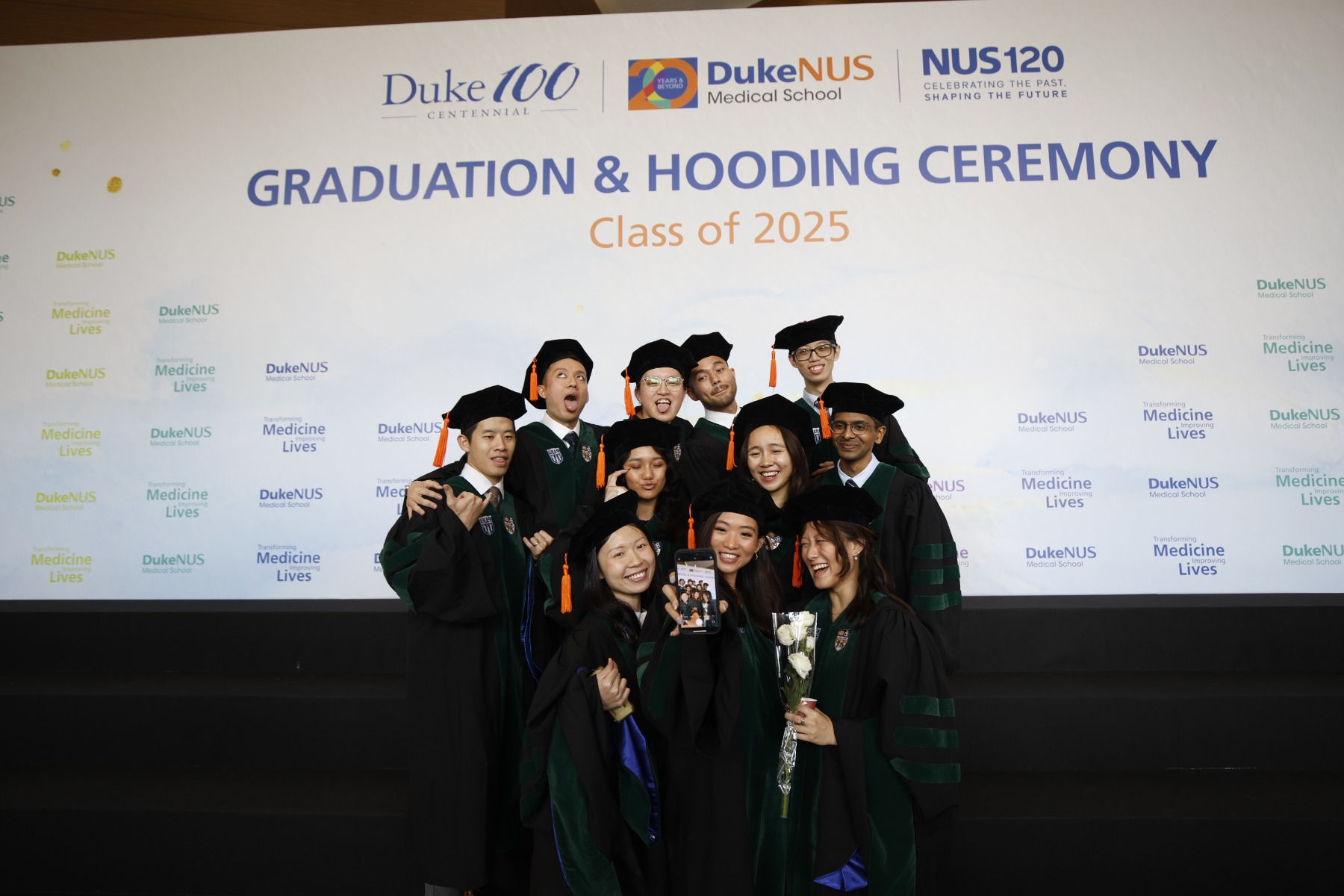
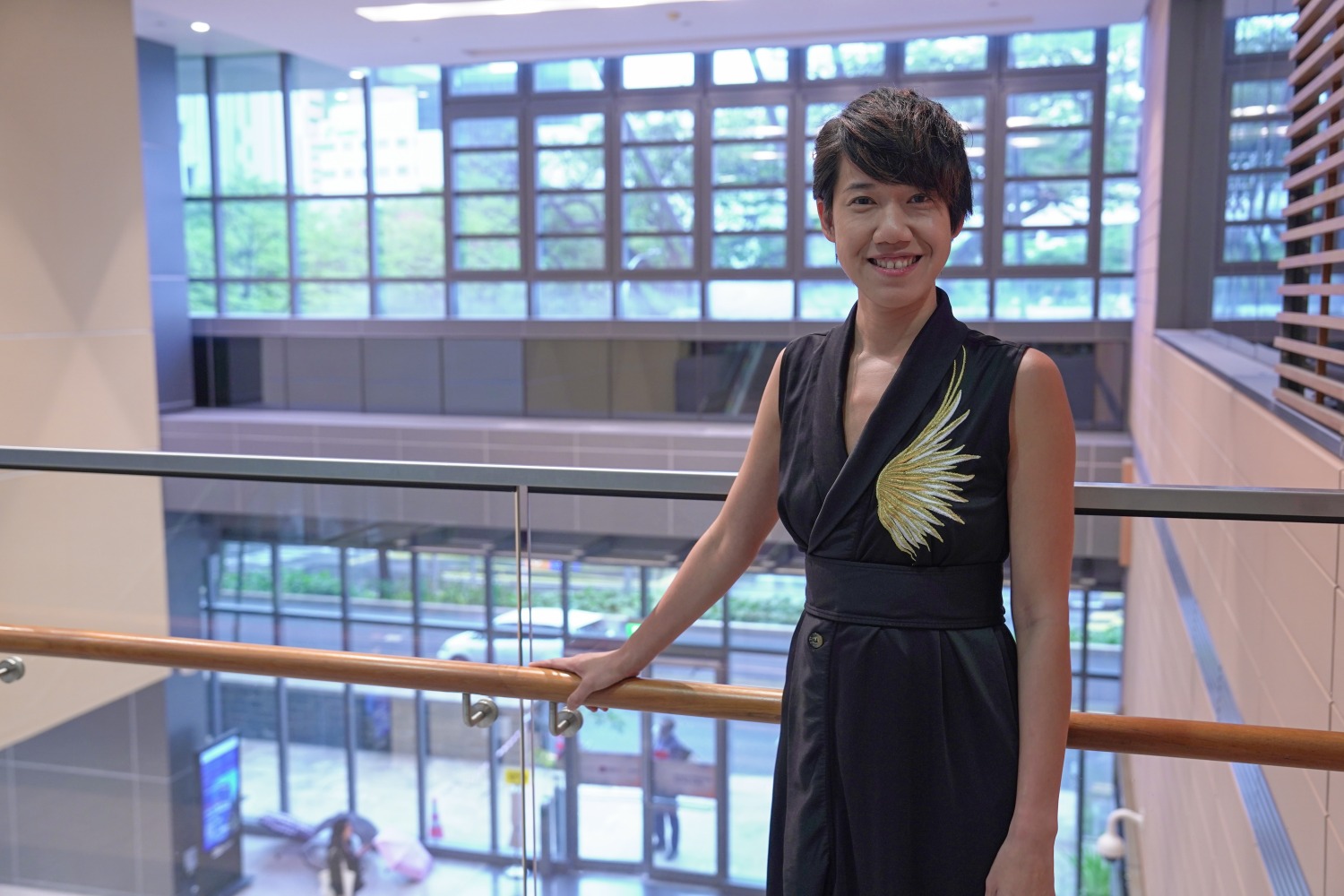
-sharing-a-happy-moment-of-camaraderie-with-her-team-members-in-the-clinical-performance-centre.jpeg?sfvrsn=e0bcf1d6_2)
